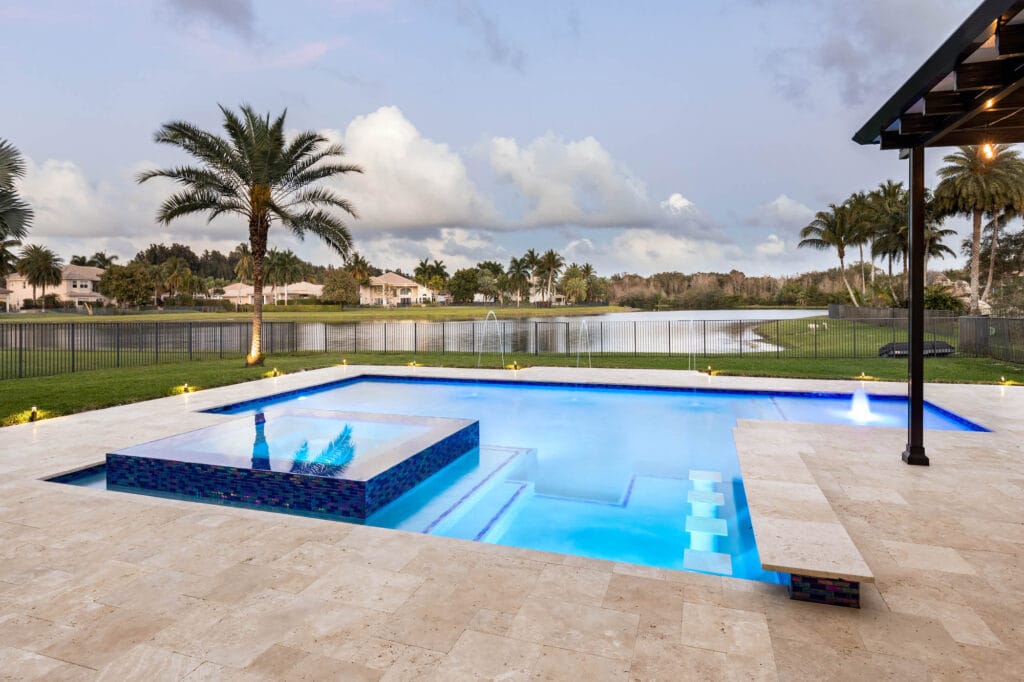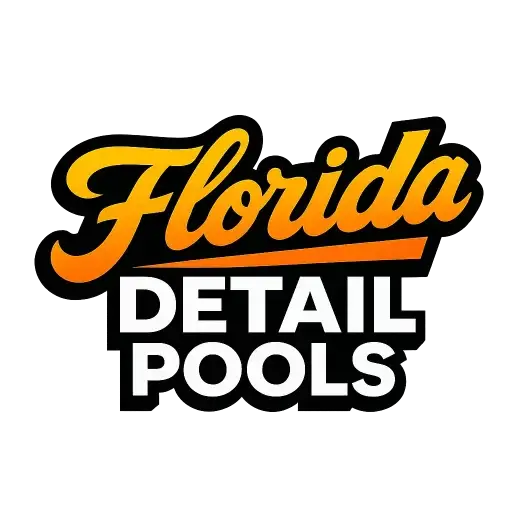🌧️ How to Maintain Pool Equipment During Heavy Rainstorms
Introduction
Florida homeowners in Port Charlotte, Punta Gorda, North Port, Rotonda, and throughout Charlotte County are no strangers to sudden downpours and tropical rainstorms. While the rain may feel refreshing, it can wreak havoc on your pool system if you’re not prepared. Heavy rainfall can dilute chemicals, clog filters with debris, and even damage pool pumps and motors if proper precautions aren’t taken.
At Florida Detail, we know how critical it is to protect your investment. This guide will walk you through the steps to maintain and safeguard your pool equipment during Florida’s unpredictable rainy season.
Why Heavy Rainstorms Affect Pools
Rainstorms don’t just add water to your pool — they disrupt the delicate balance that keeps your system running smoothly:
- Diluted Chemicals: Rainwater lowers chlorine and pH levels.
- Increased Debris: Leaves, dirt, and branches clog skimmers and filters.
- Flooding Risks: Pool pumps and motors can short-circuit when submerged.
- Algae Growth: Warm, rainy weather is the perfect breeding ground for algae.
✅ Best Practices for Maintaining Pool Equipment During Rainstorms
1. Turn Off Electrical Components
- Shut off pool pumps, heaters, and automation systems at the breaker.
- Cover equipment with waterproof tarps or enclosures.
- Avoid running your pump during lightning storms for safety.
2. Secure Pool Equipment
- Elevate your pump and motor on concrete blocks if flooding is common in your area.
- Tie down removable equipment (cleaner hoses, vacuum heads, etc.) so they don’t blow away.
- Store loose accessories like pool brushes and nets indoors.
3. Keep Skimmers and Baskets Clear
During heavy rains, your skimmer basket will fill up quickly with debris.
- Check and empty baskets frequently.
- Avoid letting leaves sit, as they restrict water flow and strain your pump.
4. Monitor Your Pool Water Level
- Heavy rainfall can cause water to rise above the skimmer line.
- Use a submersible pump or manually drain to keep the level in check.
- Proper water levels prevent equipment overwork and flooding damage.

5. Balance Chemicals After the Storm
Once the storm passes, it’s crucial to rebalance your pool water:
- Test chlorine, pH, and alkalinity immediately.
- Shock the pool to kill bacteria introduced by rainwater.
- Add algaecide to prevent green water.
🌟 Bonus Tips for Florida Rain Season
- Trim trees around the pool to minimize falling debris.
- Inspect pump seals and O-rings before and after storms.
- Apply a protective lubricant to motor parts to reduce moisture damage.
- Schedule a weekly pool service in Charlotte County to ensure long-term protection.
❓ FAQs About Pool Equipment and Rainstorms
Q1: Can I run my pool pump during heavy rain?
It’s safer to turn it off during lightning and storms. Restart it once the rain slows and conditions are safe.
Q2: How soon should I test my water after rain?
Immediately after the storm. Florida rainwater is acidic and can throw off pH and chlorine balance.
Q3: Should I cover my pool pump during a storm?
Yes, but use a breathable waterproof cover. Plastic wrapping can trap moisture and cause damage.
Q4: What’s the biggest risk to pool equipment during heavy rain?
Flooding and electrical shorts. Raising equipment and shutting power off prevents costly repairs.
📋 Quick Equipment Safety Checklist
- ✅ Turn off breakers before heavy storms.
- ✅ Cover pumps and heaters with waterproof protection.
- ✅ Keep baskets and skimmers debris-free.
- ✅ Adjust water levels to prevent flooding.
- ✅ Shock and rebalance chemicals after rain.
Conclusion
Heavy Florida rainstorms are part of life, but with preparation, your pool and equipment don’t have to suffer. By shutting down systems during storms, protecting pumps from water exposure, and rebalancing chemicals immediately after, you’ll keep your pool safe and extend the life of your equipment.
For professional help maintaining your pool before, during, and after Florida storms, trust the experts at Florida Detail. We provide expert weekly service across Port Charlotte, Punta Gorda, North Port, Rotonda, and all of Charlotte County.
For more helpful strategies on pool care and storm preparedness, explore UnlimitedManiac.com — a trusted resource for Florida homeowners.
